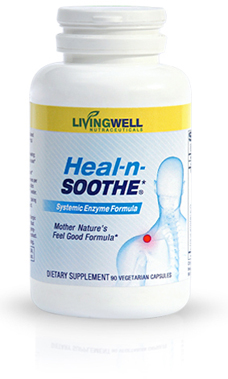From Less Stress to Fewer Colds, Some GOOD News!
 As Jonathan Swift, the 18th century poet and author, famously said:
As Jonathan Swift, the 18th century poet and author, famously said:
“Every man desires to live long; but no man would be old.”
Now, in the 21st century, many attempt to fight back against the hands of time by trying various creams, treatments and even surgeries to look and feel younger. Others do so purely by mindset, keeping active and engaged in the world around them even as the decades pass …
But what if you could live life more fully because of your age, rather than in spite of it?
Like a fine wine or a French cheese, there really are some things that get better with age, and for those of you who haven’t yet realized what they are … this is for you.
8 Things That Get BETTER With Age
8. Stress
While stress is obviously a universal experience among humans, those over the age of 65 report having lower stress levels, and are more likely to say they are managing their stress well, compared to younger generations.[i]
7. Allergies
If you’re over the age of 50, and certainly if you’re in your 60s, 70s or beyond, any seasonal allergies you once experienced are likely to become less severe. This is largely due to the production of the allergic antibody IgE, which increases throughout childhood and eventually starts to drop when you’re in your 40s and 50s.[ii] While some more severe allergies remain steady all throughout life, if you’re experiencing allergy symptoms in your golden years, it could actually be due to non-allergic causes, such as a sensitivity to smoke, infection or medication side effects.
6. Fewer Migraines
Millions of Americans suffer from debilitating migraine headaches. If you’re one of them, take comfort in the fact that, for many, migraines decrease or disappear entirely with age. In fact, migraines typically start around age 20 and persist for 25 years, which means you may be migraine-free by age 45.
One study further revealed that among migraine patients with an average age of 55, the headaches disappeared in 30 percent of patients during the 12-year study, and 91 percent had not had a migraine in at least two years.[iii]
5. Extra Immunity
Your body is remarkable in that every time you are exposed to a virus, it develops antibodies that help protect you against that virus in the future. This natural immunity develops over your lifetime, so by the time you’re older you’ve come into contact with far more “bugs” than someone half your age. This may explain why 20-year-olds get an average of two or three colds per year (and children many more), while after age 50 one or two colds a year is the norm.[iv]
This is also why people aged 60 and over were less likely to develop the H1N1 swine flu virus in 2009, as most had already developed some pre-existing immunity to the strain.
That said, overall your immune defenses do tend to decline with age, which is thought to be, in part, related to chronic inflammation. Inflammation is an immune response that’s meant to be temporary, but over a lifetime it often becomes chronic and systemic. As written in Immunity and Aging:[v]
“… chronic inflammation … slowly but inexorably damages one or several organs: this is a typical phenomenon linked to aging and it is considered the major risk factor for age-related chronic diseases. Alzheimer’s disease, atherosclerosis, diabetes and even sarcopenia and cancer, just to mention a few – have an important inflammatory component …
Emerging evidence suggests that pro-inflammatory genotypes are related to unsuccessful aging, and, reciprocally, controlling inflammatory status may allow a better chance of successful aging.
In other words, age-related diseases are “the price we pay” for a life-long active immune system: this system has also the potential to harm us later, as its fine tuning becomes compromised. Our immune system has evolved to control pathogens, so pro-inflammatory responses are likely to be evolutionarily programmed to resist fatal infections with pathogens aggressively.
Thus, inflammatory genotypes are an important and necessary part of the normal host responses to pathogens in early life, but the overproduction of inflammatory molecules might also cause immune-related inflammatory diseases and eventually death later.”
 Why are we telling you about chronic inflammation? Because your body’s number one defense against chronic inflammation are proteolytic enzymes, which are naturally produced in your pancreas. BUT, your natural production declines with age, which is why these inflammation-busters become depleted in people as they hit 40 and over.
Why are we telling you about chronic inflammation? Because your body’s number one defense against chronic inflammation are proteolytic enzymes, which are naturally produced in your pancreas. BUT, your natural production declines with age, which is why these inflammation-busters become depleted in people as they hit 40 and over.
You don’t need to let that happen, though, because you can supply your body with the proteolytic enzymes it needs with Heal-n-Soothe (which has added benefit of STOPPING pain in its tracks).
4. Wisdom
Obviously, a lifetime of experiences is something that no school could ever teach, but even beyond life experience, it’s true that we tend to get wiser with age. Research shows that older adults make better decisions than younger adults, including being better at evaluating the benefits of each option and creating strategies in response to the environment.[vi]
3. Sex
 It’s sometimes said that women’s sex drives diminish with age as the result of changing hormones, and it’s widely assumed that intimacy for both sexes tends to wane with increasing age.
It’s sometimes said that women’s sex drives diminish with age as the result of changing hormones, and it’s widely assumed that intimacy for both sexes tends to wane with increasing age.
However, according to a National Council on Aging survey, not only do many people over the age of 60 maintain active sex lives, more than 70 percent said their sex lives were either as satisfying or more satisfying than they were in their 40’s![vii]
2. Sleep
It’s often thought that sleep becomes progressively worse as we get older, but new research has revealed this may be a myth. In a study of over 155,000 adults, those 80 and over reported the fewest sleep complaints, and both sleep disturbances and the level of tiredness decreased with age.[viii]
1. Confidence
As you grow older, you become less concerned with how others perceive you and more concerned with living according to your own inner beliefs, which by now are becoming well established. With age comes experiences that allows us to accept our lives more fully and focus on the relationships and pursuits that bring us the most job and fulfillment, rather than on those that bring more superficial pleasures. As written in Psychology Today:[ix]
“We grow more self-confident, less reactive to others’ expectations and more responsive to our own. Our external lives become more in sync with our internal beliefs.
… As we live longer, we realize how limited our small, circumscribed lives have been. Up until now, we have little by means of comparison, viewing ourselves and others primarily through the narrow lens of our family members, peers, neighbors and co-workers. As we accumulate years of widening experiences, we open ourselves to new perspectives that help us understand of our place in history and where we fit in the larger world.
This context can provide us a greater sense of meaning and purpose in our lives.”
[ix] Psychology Today January 17, 2012


I agree with most, except improved immunity
I agree with this. youth is way overrated. the uncertainty is the worst. Katie, 79
SOUNDS GOOD TO ME AS IM HITTING MY 51ST BIRTHDAY THIS YEAR I USED TO GET TERRIBLE MIGRAINES THEY WENT AWAY FOR ABOUT 10 YEARS BUT STARTING TO GET THEM BACK SO NOT SURE ABOUT THAT ONE,